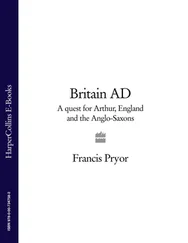Неизвестный автор - The Anglo-Saxon Chronicle
Здесь есть возможность читать онлайн «Неизвестный автор - The Anglo-Saxon Chronicle» — ознакомительный отрывок электронной книги совершенно бесплатно, а после прочтения отрывка купить полную версию. В некоторых случаях можно слушать аудио, скачать через торрент в формате fb2 и присутствует краткое содержание. Жанр: foreign_prose, История, foreign_edu, foreign_antique, на английском языке. Описание произведения, (предисловие) а так же отзывы посетителей доступны на портале библиотеки ЛибКат.
- Название:The Anglo-Saxon Chronicle
- Автор:
- Жанр:
- Год:неизвестен
- ISBN:нет данных
- Рейтинг книги:4 / 5. Голосов: 1
-
Избранное:Добавить в избранное
- Отзывы:
-
Ваша оценка:
- 80
- 1
- 2
- 3
- 4
- 5
The Anglo-Saxon Chronicle: краткое содержание, описание и аннотация
Предлагаем к чтению аннотацию, описание, краткое содержание или предисловие (зависит от того, что написал сам автор книги «The Anglo-Saxon Chronicle»). Если вы не нашли необходимую информацию о книге — напишите в комментариях, мы постараемся отыскать её.
The Anglo-Saxon Chronicle — читать онлайн ознакомительный отрывок
Ниже представлен текст книги, разбитый по страницам. Система сохранения места последней прочитанной страницы, позволяет с удобством читать онлайн бесплатно книгу «The Anglo-Saxon Chronicle», без необходимости каждый раз заново искать на чём Вы остановились. Поставьте закладку, и сможете в любой момент перейти на страницу, на которой закончили чтение.
Интервал:
Закладка:
Sixty winters ere that Christ was born, Caius Julius, emperor of the Romans, with eighty ships sought Britain. There he was first beaten in a dreadful fight, and lost a great part of his army. Then he let his army abide with the Scots 42 42 This is an error, arising from the inaccurately written MSS. of Orosius and Bede; where "in Hybernia" and "in Hiberniam" occur for "in hiberna". The error is retained in Wheloc's Bede.
, and went south into Gaul. There he gathered six hundred ships, with which he went back into Britain. When they first rushed together, Caesar's tribune, whose name was Labienus 43 43 Labienus = Laberius. Venerable Bede also, and Orosius, whom he follows verbatim, have "Labienus". It is probably a mistake of some very ancient scribe, who improperly supplied the abbreviation "Labius" (for "Laberius") by "Labienus".
, was slain. Then took the Welsh sharp piles, and drove them with great clubs into the water, at a certain ford of the river called Thames. When the Romans found that, they would not go over the ford. Then fled the Britons to the fastnesses of the woods; and Caesar, having after much fighting gained many of the chief towns, went back into Gaul 44 44 Of these early transactions in Britain King Alfred supplies us with a brief but circumstantial account in his Saxon paraphrase of "Orosius".
.
((B.C. 60. Before the incarnation of Christ sixty years, Gaius Julius the emperor, first of the Romans, sought the land of Britain; and he crushed the Britons in battle, and overcame them; and nevertheless he was unable to gain any empire there.))
A.D. 1. Octavianus reigned fifty-six winters; and in the forty-second year of his reign Christ was born. Then three astrologers from the east came to worship Christ; and the children in Bethlehem were slain by Herod in persecution of Christ.
A.D. 3. This year died Herod, stabbed by his own hand; and Archelaus his son succeeded him. The child Christ was also this year brought back again from Egypt.
A.D. 6. From the beginning of the world to this year were agone five thousand and two hundred winters.
A.D. 11. This year Herod the son of Antipater undertook the government in Judea.
A.D. 12. This year Philip and Herod divided Judea into four kingdoms.
((A.D. 12. This year Judea was divided into four tetrarchies.))
A.D. 16. This year Tiberius succeeded to the empire.
A.D. 26. This year Pilate began to reign over the Jews.
A.D. 30. This year was Christ baptized; and Peter and Andrew were converted, together with James, and John, and Philip, and all the twelve apostles.
A.D. 33. This year was Christ crucified; 45 45 "8 die Aprilis", Flor. M. West.
about five thousand two hundred and twenty six winters from the beginning of the world. 46 46 Gibbon regrets this chronology, i.e. from the creation of the world, which he thinks preferable to the vulgar mode from the Christian aera. But how vague and uncertain the scale which depends on a point so remote and undetermined as the precise time when the world was created. If we examine the chronometers of different writers we shall find a difference, between the maximum and the minimum, of 3368 years. The Saxon chronology seems to be founded on that of Eusebius, which approaches the medium between the two extremes.
A.D. 34. This year was St. Paul converted, and St. Stephen stoned.
A.D. 35. This year the blessed Peter the apostle settled an episcopal see in the city of Antioch.
A.D. 37. This year 47 47 An. 42, Flor. This act is attributed by Orosius, and Bede who follows him, to the threatening conduct of Caligula, with a remark, that it was he (Pilate) who condemned our Lord to death.
Pilate slew himself with his own hand.
A.D. 39. This year Caius undertook the empire.
A.D. 44. This year the blessed Peter the apostle settled an episcopal see at Rome; and James, the brother of John, was slain by Herod.
A.D. 45. This year died Herod, who slew James one year ere his own death.
A.D. 46. This year Claudius, the second of the Roman emperors who invaded Britain, took the greater part of the island into his power, and added the Orkneys to rite dominion of the Romans. This was in the fourth year of his reign. And in the same year 48 48 An. 48, Flor. See the account of this famine in King Alfred's "Orosius".
happened the great famine in Syria which Luke mentions in the book called "The Acts of the Apostles". After Claudius Nero succeeded to the empire, who almost lost the island Britain through his incapacity.
((A.D. 46. This year the Emperor Claudius came to Britain, and subdued a large part of the island; and he also added the island of Orkney to the dominion of the Romans.))
A.D. 47. This year Mark, the evangelist in Egypt beginneth to write the gospel.
((A.D. 47. This was in the fourth year of his reign, and in this same year was the great famine in Syria which Luke speaks of in the book called "Actus Apostolorum".))
((A.D. 47. This year Claudius, king of the Romans, went with an army into Britain, and subdued the island, and subjected all the Picts and Welsh to the rule of the Romans.))
A.D. 50. This year Paul was sent bound to Rome.
A.D. 62. This year James, the brother of Christ, suffered.
A.D. 63. This year Mark the evangelist departed this life.
A.D. 69. This year Peter and Paul suffered.
A.D. 70. This year Vespasian undertook the empire.
A.D. 71. This year Titus, son of Vespasian, slew in Jerusalem eleven hundred thousand Jews.
A.D. 81. This year Titus came to the empire, after Vespasian, who said that he considered the day lost in which he did no good.
A.D. 83. This year Domitian, the brother of Titus, assumed the government.
A.D. 84. This year John the evangelist in the island Patmos wrote the book called "The Apocalypse".
A.D. 90. This year Simon, the apostle, a relation of Christ, was crucified: and John the evangelist rested at Ephesus.
A.D. 92. This year died Pope Clement.
A.D. 110. This year Bishop Ignatius suffered.
A.D. 116. This year Hadrian the Caesar began to reign.
A.D. 145. This year Marcus Antoninus and Aurelius his brother succeeded to the empire.
((A.D. 167. This year Eleutherius succeeded to the popedom, and held it fifteen years; and in the same year Lucius, king of the Britons, sent and begged baptism of him. And he soon sent it him, and they continued in the true faith until the time of Diocletian.))
A.D. 189. This year Severus came to the empire; and went with his army into Britain, and subdued in battle a great part of the island. Then wrought he a mound of turf, with a broad wall thereupon, from sea to sea, for the defence of the Britons. He reigned seventeen years; and then ended his days at York. His son Bassianus succeeded him in the empire. His other son, who perished, was called Geta. This year Eleutherius undertook the bishopric of Rome, and held it honourably for fifteen winters. To him Lucius, king of the Britons, sent letters, and prayed that he might be made a Christian. He obtained his request; and they continued afterwards in the right belief until the reign of Diocletian.
A.D. 199. In this year was found the holy rood. 49 49 Those writers who mention this discovery of the holy cross, by Helena the mother of Constantine, disagree so much in their chronology, that it is a vain attempt to reconcile them to truth or to each other. This and the other notices of ecclesiastical matters, whether Latin or Saxon, from the year 190 to the year 380 of the Laud MS. and 381 of the printed Chronicle, may be safely considered as interpolations, probably posterior to the Norman Conquest.
A.D. 283. This year suffered Saint Alban the Martyr.
A.D. 343. This year died St. Nicolaus.
Читать дальшеИнтервал:
Закладка:
Похожие книги на «The Anglo-Saxon Chronicle»
Представляем Вашему вниманию похожие книги на «The Anglo-Saxon Chronicle» списком для выбора. Мы отобрали схожую по названию и смыслу литературу в надежде предоставить читателям больше вариантов отыскать новые, интересные, ещё непрочитанные произведения.
Обсуждение, отзывы о книге «The Anglo-Saxon Chronicle» и просто собственные мнения читателей. Оставьте ваши комментарии, напишите, что Вы думаете о произведении, его смысле или главных героях. Укажите что конкретно понравилось, а что нет, и почему Вы так считаете.







